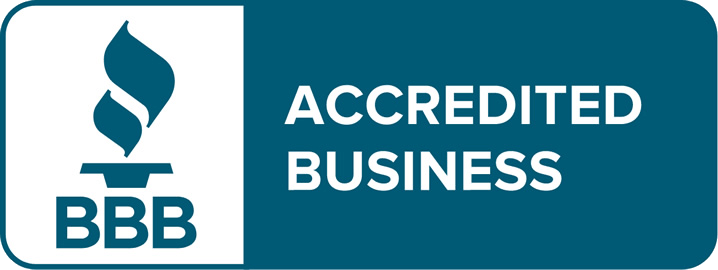Tax debt can be confusing and finding good advice and an adviser with your best interests at heart can be a trying process. You can find positive and negative reviews for just about every provider in the industry so it can be tough to pull the trigger and hire help when you can’t afford to be wrong.
Critics, unfamiliar with the nuance of our practice, often claim that the process can be handled on your own at a fraction of the cost, with no need for expert advice while others target the fact that many companies operate without credentials. At 20/20, we are a firm of Enrolled Agents, licensed to practice before the IRS. We have been in business for nearly 20 years representing clients and offering our expertise to help resolve tax debt through the most effective means possible. Additionally, we know first hand how arduous dealing with the IRS can be. According to the IRS, a 2015 study showed that only 37% of calls to IRS customer service were actually answered with the average wait time being 27 minutes.

Everyone Can Settle Tax Debt – A Marketing Gimmick
Advertisements push the notion that your debt can be reduced and you will only pay a fraction of the amount owed. While this is true for some, others will find this may not be an option.
The IRS and most states base their willingness to reduce a liability to less than the principal tax owed on the financial condition of the debtor. If they believe, based on a financial analysis, that there is a greater good that can be achieved by settling the debt and focusing on future compliance, they will agree to settle the liability. As tax resolution experts, we work diligently to make the argument that a client’s financial condition warrants the acceptance of an offer to settle, or as it is known, an Offer in Compromise.
Some will find the Offer in Compromise process is not one that best meets their needs since they don’t meet the qualifications. In those instances, we work to reach a resolution that works within a client’s budgetary constraints so they can remain protected from enforced collection.
Easy Enough To Do On Your Own – A Dangerous Rhetoric
In some cases, the tax resolution industry is criticized because individual debtors can obtain installment agreements without a financial review when their liability falls below a certain threshold. These agreements are known as Streamlined Agreements and involve either a 72 or 84 month limit on the time required to repay the liability. In a situation where the Streamlined Agreement amounts to a lower monthly payment than a financial review suggests, we do recommend these, but only if it is the most effective resolution.
There is a lesser known solution whereby a debtor can reach an installment agreement that doesn’t amount to paying the liability in full, but makes payments through the collection statute expiration date (‘CSED’). While there are exceptions to the CSED rule of 10 years that can toll the time frame, in most cases, a debt becomes non-collectible 10 years after it originally becomes due. These types of agreements are reviewed no less than every two years to see if the debtor can increase their monthly payments, but typically result in a greater savings than a full pay installment agreement.
In addition to compromises and payment plans, we work to abate penalties and lessen the impact of tax liens imposed on our clients. Most of the time, a taxpayer will be eligible for a first time penalty abatement (‘FTA’). The FTA is a no strings attached abatement that can be given without cause provided there was a history of compliance with no penalties for 3 prior tax periods. In addition to the FTA, we are able to submit a reasonable cause penalty abatement. An abatement for reasonable cause must be constructed to represent that the failure to file or failure to pay was not a result of willful neglect, but rather the result of reasonable cause. Typically, the IRS applies the cause stated to their reasonable cause assistant to determine if the threshold has been met to abate the penalties. Even if an initial request is denied, a qualified tax resolution expert can contest the ruling through an appeals process. In cases where liens pose a problem, solutions are available.
Representation Matters
Did you know the right to representation exists in the IRS collection process? If sued by a creditor for the same amount that the taxing authorities allege, would you represent yourself? Maybe, but most likely not. The IRS recognizes the adversarial nature in which they are pursuing their best interest, not yours. As a result, the right to counsel in the collection process is afforded by the Taxpayer Bill of Rights.
It is important to understand that the resolution process is not one where a licensed expert can make your liability disappear with an incredibly low settlement offer, but rather one where an expert can analyze your profile and your debt and develop the solution that saves you the most time and money in the long run. We believe we offer the most intelligent and thorough solutions in the industry today and strive to offer solutions that we believe are attainable in order to provide our clients the service and solutions they deserve.



